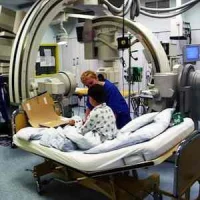New findings from Yale School of Medicine suggest that the decline in the number of patients undergoing unnecessary percutaneous coronary intervention (PCI) procedures reflects improvements in clinical decision-making and documentation to determine which patients would benefit most from such procedures. The study is published in the Journal of the American Medical Association.
PCI, also known as angioplasty, is widely used to treat clogged arteries in patients with CAD. Recently, more attention is being paid as to whether patients need to undergo PCI or not. Policy makers, insurers and clinicians have all made an effort to evaluate the use of the procedure and it has been the focus of national quality improvement initiatives. The 2009 Appropriate Use Criteria for Coronary Revascularization also provides a guideline designed to improve patient selection for PCI and coronary artery bypass grafting.
See also: Current Developments in the European PCI Devices Market
Previous studies have found that several elective PCI procedures were inappropriate and the risk clearly outweighed the benefits of the procedure.
Senior author Jeptha P. Curtis, MD, associate professor of medicine at Yale School of Medicine and colleagues used data from the American College of Cardiology's CathPCI Registry. They examined the appropriateness of more than 2.7 million PCI procedures performed at 766 hospitals.
The findings showed that inappropriate non-acute PCIs declined from 26 percent in 2010 to 13 percent in 2014. While the number of acute PCIs remained stable, the volume of non-acute PCIs declined by 34 percent. Higher proportion of patients underwent non-acute PCI in 2014 and were reported to have severe angina and more aggressive medical therapy as compared to patients in 2010.
See also: FFR and IVUS-Guided PCI vs Standard PCI
"While the proportion of non-acute PCIs classified as inappropriate has declined, there is still hospital-level variation in inappropriate PCI," said Dr. Curtis. "At better-performing hospitals, less than 6% of procedures were classified as inappropriate. In contrast, at worse-performing hospitals, more than 22% of procedures were classified as inappropriate."
Dr. Curtis points out that inappropriate PCI reductions began to accelerate in 2011 and this reduction coincided with the publication of a report on PCI appropriateness as well as the launch of performance improvement campaigns.
First author Nihar R. Desai, MD, assistant professor of medicine at Yale School of Medicine highlights the need for ongoing performance-improvement initiatives and hospital benchmarking to ensure a decline in inappropriate PCI.
Source: Yale University
Image Credit: Michael Helfenbein, Yale University










